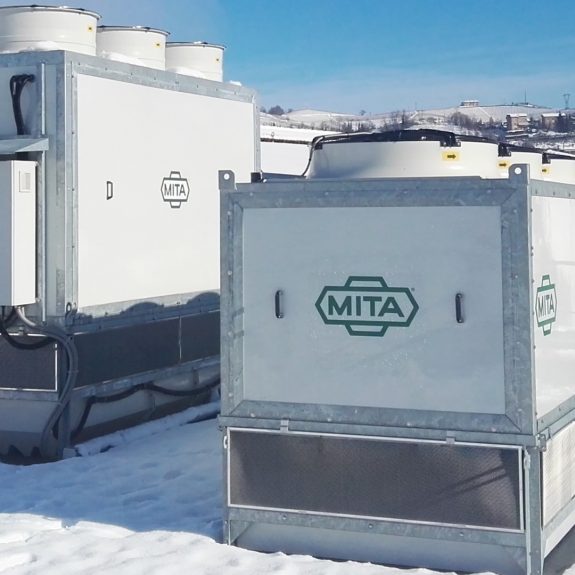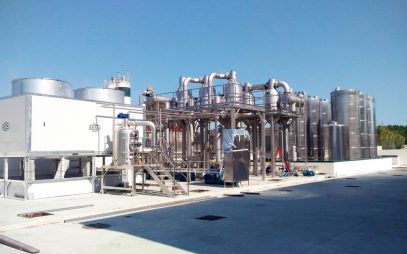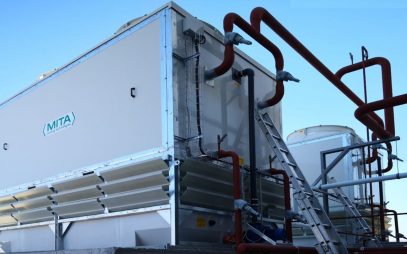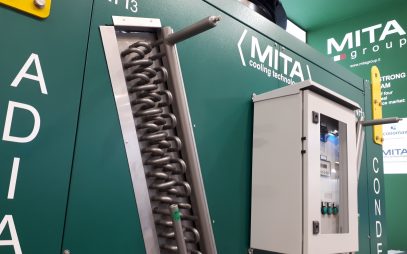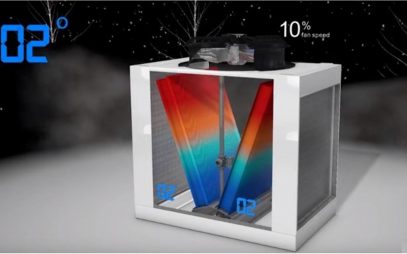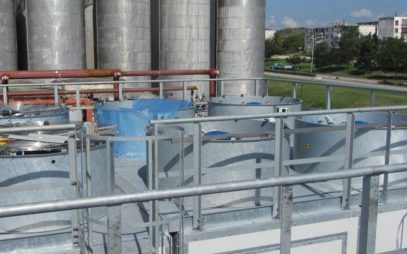1. Kontext und Anforderungen der Installation
Die Molkerei in Langhe wollte ihr Geschäft ausweiten, um den Großhandel zu beliefern, wobei der Schwerpunkt auf der Energieeffizienz lag. Die gewählten Anlagenlösungen mussten daher dieses Wachstum unterstützen, und zwar durch ein Kältesystem mit zwei Einheiten und unterschiedlichen Zielen.
Eine erste Anlage musste für die Kühlung mit dem Kältemittel R1234ze vorgesehen werden. Die zweite, mit transkritischem R744 betriebene Anlage sollte hochwertiges Wasser zurückgewinnen, das dann für die Beheizung der Reifezellen wiederverwendet werden sollte.
2. Vorgeschlagene Lösungen
Für beide Bereiche hat Telos die MITA-Kühl- und Verflüssigungslösungen geliefert: eine Verdunstungs- und eine adiabatische Lösung. Die erste der beiden Kühleinheiten wird nun durch den Verdunstungskondensator MCE versorgt: eine Maschine, die dank der geringen installierten Leistung für einen geringeren Energieverbrauch sorgt. Das zweite der beiden Kühlaggregate, das transkritische R744-Aggregat, wird dagegen von einem Gaskühler unterstützt. Seine elektrisch gesteuerten Ventilatoren sorgen für einen geringen Energieverbrauch.
Darüber hinaus ermöglicht die adiabatische Kühlung im Vergleich zu Luftsystemen eine hohe Leistung in warmen Jahreszeiten.
3. Results and key success factors
„Mit den technischen Lösungen, die in der transkritischen R744-Einheit zum Einsatz kommen, decken wir zwischen 80 und 100 Prozent der Wärmelast der Anlage ab“, freut sich Telos-Ingenieur Pasini. Der Gaskühler von MITA Cooling Technologies trägt ebenfalls zu dieser Leistung bei.
Das Planungsbüro Telos, das Kunden von der ersten Bedarfsermittlung bis zur Prüfung und Feinabstimmung begleitet, hat das Projekt der Molkerei Langa seit Juli 2014 verfolgt. Die Tests fanden im Juli 2017 statt. Ein besonderes Augenmerk bei der Auswahl der Lieferungen liegt nach Aussage des Unternehmens stets auf den wirtschaftlich und energetisch vorteilhaftesten Lösungen: daher die Entscheidung, in MITA-Maschinen zu investieren.
Information anfragen